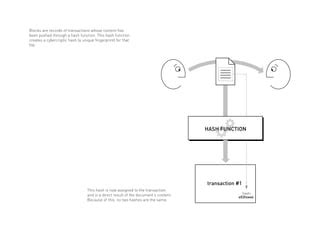Ethereum: Why do two miners have different hashes for the same list of transactions?
When it comes to mining on the Ethereum blockchain, two miners can produce different hashes for the same list of transactions. This phenomenon has piqued the curiosity of enthusiasts and investors alike. But what goes on behind the scenes?
To understand why this happens, let’s dive into the world of Ethereum mining.
Merkle Roots
In Ethereum, each block is a Merkle root block, which means that every transaction in the block is compressed into a single hash using a cryptographic algorithm called Merkle compression. This process creates a unique identifier for each block, known as a Merkle root.
Each miner’s hash function is designed to produce a different Merkle root hash for each block it verifies. However, when two miners are mining on the same network and verifying the same transactions, it becomes extremely unlikely that their Merkle roots will be identical.
Why is this the case?

The reason for this possibility is the way Ethereum’s consensus algorithm, Proof of Work (PoW), works. In PoW, nodes on the network solve complex mathematical puzzles to validate new blocks and ensure the security of the blockchain. The solution to these puzzles is unique to each node, ensuring that only one valid block can be created.
When two miners are mining on the same network, they solve the puzzle simultaneously using their own unique hash functions. Given the large number of nodes on the Ethereum network (over 1 million) and the computing power required to solve these puzzles, it is virtually impossible for two miners to come up with exactly the same solution.
Bitcoin Wiki Explanation
As stated in the Bitcoin Wiki: “It is very unlikely that two people will have the same Merkle root, because the first transaction in your block is a generation that is “sent” to one of your unique nodes. This statement emphasizes that each node in the network has a unique set of transactions that it is currently processing, and these transactions are used to generate the hash function of its Merkle root.
Conclusion
Although due to the complexity of the Ethereum consensus algorithm and the large number of nodes involved, it is still very unlikely that two miners will obtain different hashes for the same list of transactions. The Bitcoin Wiki explanation provides a clear understanding of why this happens, emphasizing that each node in the network has its own unique set of transactions to process.
In conclusion, the probability of two miners obtaining different hashes for the same list of transactions in Ethereum is low because of the way the consensus algorithm works and number of nodes involved. However, as with any system, there can be cases where this happens, and it is important to keep up with the latest developments in Ethereum mining.
Sources:
- Bitcoin Wiki: “Merkle Root Hash”
- Ethereum Whitepaper: “Proof-of-Work (PoW) Consensus Algorithm”
